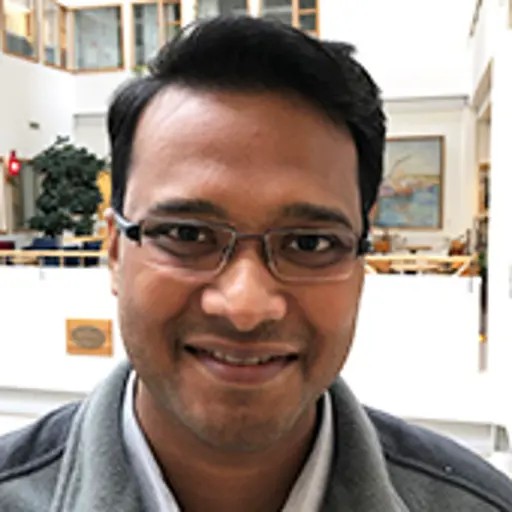Course syllabus adopted 2025-03-31 by Head of Programme (or corresponding).
Overview
- Swedish nameOpen-science för ingenjörer och forskare
- CodeTRA225
- Credits7.5 Credits
- OwnerTRACKS
- Education cycleSecond-cycle
- ThemeMTS 7.5 c
- DepartmentTRACKS
- GradingTH - Pass with distinction (5), Pass with credit (4), Pass (3), Fail
Course round 1
The course round is cancelled. For further questions, please contact the director of studies- Teaching language English
- Application code 97121
- Maximum participants24 (at least 10% of the seats are reserved for exchange students)
- Minimum participants10
- Open for exchange studentsYes
Credit distribution
Module | Sp1 | Sp2 | Sp3 | Sp4 | Summer | Not Sp | Examination dates |
|---|---|---|---|---|---|---|---|
| 0123 Project 7.5 c Grading: TH | 3.7 c | 3.8 c |
In programmes
Examiner
- Jobin John
- Director of Graduate Studies, Mechanics and Maritime Sciences
Eligibility
General entry requirements for Master's level (second cycle)Applicants enrolled in a programme at Chalmers where the course is included in the study programme are exempted from fulfilling the requirements above.
Specific entry requirements
English 6 (or by other approved means with the equivalent proficiency level)Applicants enrolled in a programme at Chalmers where the course is included in the study programme are exempted from fulfilling the requirements above.
Course specific prerequisites
In addition to the general requirements to study at advanced level at Chalmers, necessary subject or project specific prerequisite competences (if any) must be fulfilled. Alternatively, the student must obtain the necessary competences during the course. The examiner will formulate and check these prerequisite competences.The student will only be admitted in agreement with the examiner.
Aim
opportunities for innovation and worldwide collaboration. The digital transformation we are living through opens a whole new array of exciting possibilities in science and technology.
The aim of this course is to explore this new and upcoming way of doing Science and Technology.
Learning outcomes (after completion of the course the student should be able to)
- critically and creatively identify and/or formulate advanced architectural or engineering problems
- master problems with open solutions spaces which includes to be able to handle uncertainties and limited information.
- lead and participate in the development of new products, processes and systems using a holistic approach by following a design process and/or a systematic development process.
- work in multidisciplinary teams and collaborate in teams with different compositions
- show insights about cultural differences and to be able to work sensitively with them.
- show insights about and deal with the impact of architecture and/or engineering solutions in a global, economic, environment and societal context.
- identify ethical aspects and discuss and judge their consequences in relation to the specific problem
- orally and in writing explain and discuss information, problems, methods, design/development processes and solutions
- fulfill project specific learning outcomes
- Recognize various aspects required to make science open and collaborative: open data, open-source license, open access, workflows
- Identify an appropriate license for releasing a project or content in the open
- Describe steps required to promote reproducibility and replicability
- Explain characteristics of an open data, including FAIR principle
- Select appropriate tools and workflows for collaboration
- Explain various options for publishing open access
Content
The core concepts and current best practices in Open Science are introduced over three Modules. The students learn to analyze and adopt Open Science aspects through two projects topical and interview.In the topical project, the students will survey and evaluate Open Science practices in an area/topic of their interest. The students will submit a proposal at the beginning of the course and work on it through the course as they are introduced to Open Science concepts.
In an interview project towards the second half of the course, the students will engage in a group project where they will interact and learn from an Open Science practitioner.
Organisation
The course is run by a teaching team.
The main part of the course is a challenge driven project. The challenge may range from being broad societal to profound research driven. The project task is solved in a group. The course is supplemented by on-demand teaching and learning of the skills necessary for the project. The project team will have one university examiner, one or a pole of university supervisors and one or a pool of external co-supervisors if applicable.
Tracks-theme: Emerging technologies - from science to innovation
The course consists of lectures, assignments, and individual/group projects.
Literature
Examination including compulsory elements
The students are graded on their reports and oral presentations in assignments and projects. Mandatory attendance and active participation are required in the presentations. Assessment is continuous during the course and divided as follows.- Project proposal (pass/fail)
- Assignment presentations in the Modules (15%)
- Topical project (50%)
- Interview project (35%)
The course examiner may assess individual students in other ways than what is stated above if there are special reasons for doing so, for example if a student has a decision from Chalmers about disability study support.
The course syllabus contains changes
- Changes to course:
- 2025-05-23: Discontinued Changed to discontinued by UOL/Adm
The course is discontinued
- 2025-05-23: Discontinued Changed to discontinued by UOL/Adm
- Changes to course rounds:
- 2025-03-31: Cancelled Changed to cancelled by UOL
[Course round 1] Cancelled
- 2025-03-31: Cancelled Changed to cancelled by UOL
